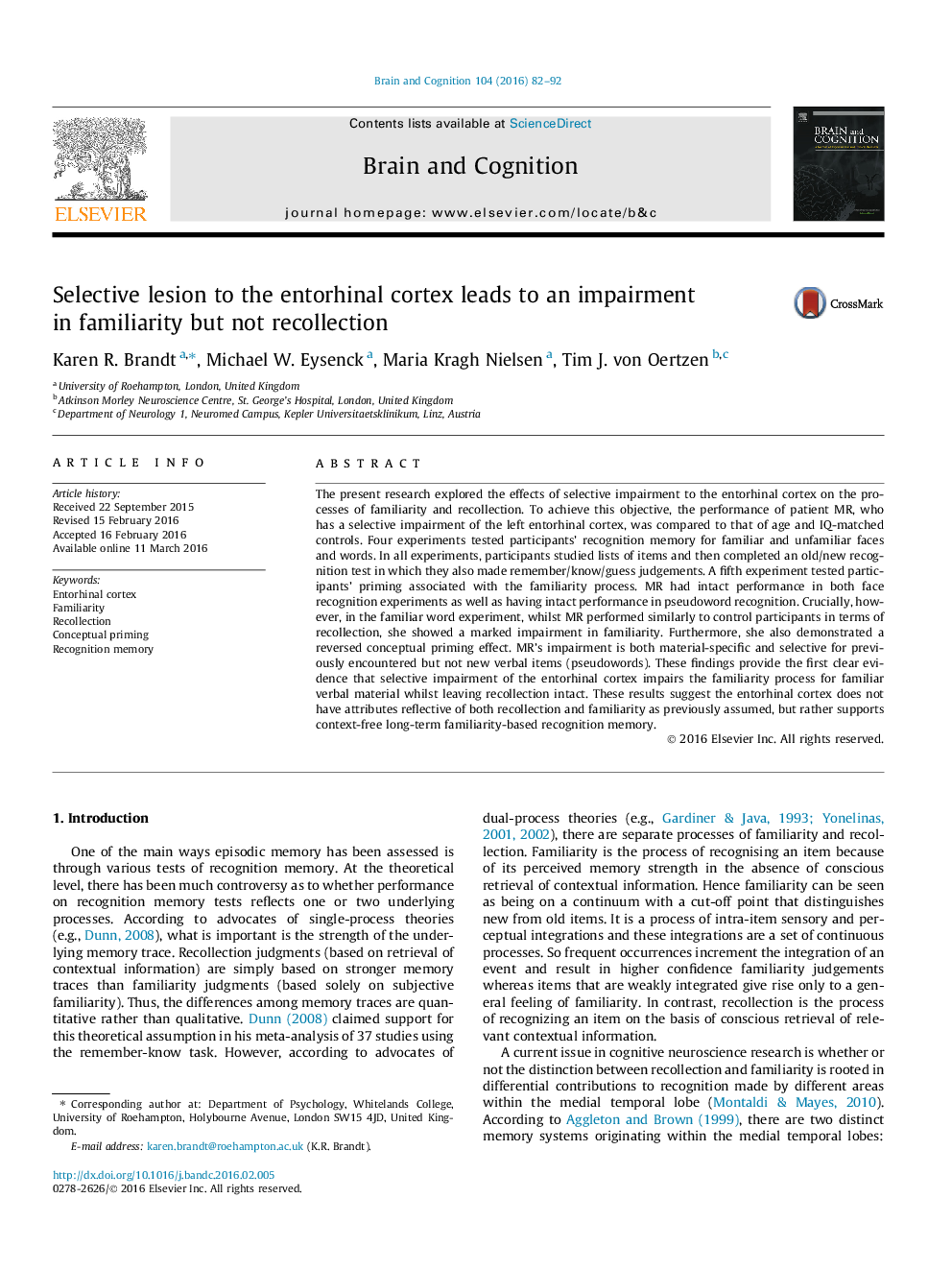| Article ID | Journal | Published Year | Pages | File Type |
|---|---|---|---|---|
| 924135 | Brain and Cognition | 2016 | 11 Pages |
•We explored recognition memory in a patient with a left entorhinal cortex lesion.•No differences emerged in recollection or familiarity for faces or unfamiliar words.•A strong impairment in familiarity but not recollection for familiar words was found.•Furthermore the patient demonstrated a reversed conceptual priming effect.•Results suggest a selective role of the entorhinal cortex in familiarity processes.
The present research explored the effects of selective impairment to the entorhinal cortex on the processes of familiarity and recollection. To achieve this objective, the performance of patient MR, who has a selective impairment of the left entorhinal cortex, was compared to that of age and IQ-matched controls. Four experiments tested participants’ recognition memory for familiar and unfamiliar faces and words. In all experiments, participants studied lists of items and then completed an old/new recognition test in which they also made remember/know/guess judgements. A fifth experiment tested participants’ priming associated with the familiarity process. MR had intact performance in both face recognition experiments as well as having intact performance in pseudoword recognition. Crucially, however, in the familiar word experiment, whilst MR performed similarly to control participants in terms of recollection, she showed a marked impairment in familiarity. Furthermore, she also demonstrated a reversed conceptual priming effect. MR’s impairment is both material-specific and selective for previously encountered but not new verbal items (pseudowords). These findings provide the first clear evidence that selective impairment of the entorhinal cortex impairs the familiarity process for familiar verbal material whilst leaving recollection intact. These results suggest the entorhinal cortex does not have attributes reflective of both recollection and familiarity as previously assumed, but rather supports context-free long-term familiarity-based recognition memory.
